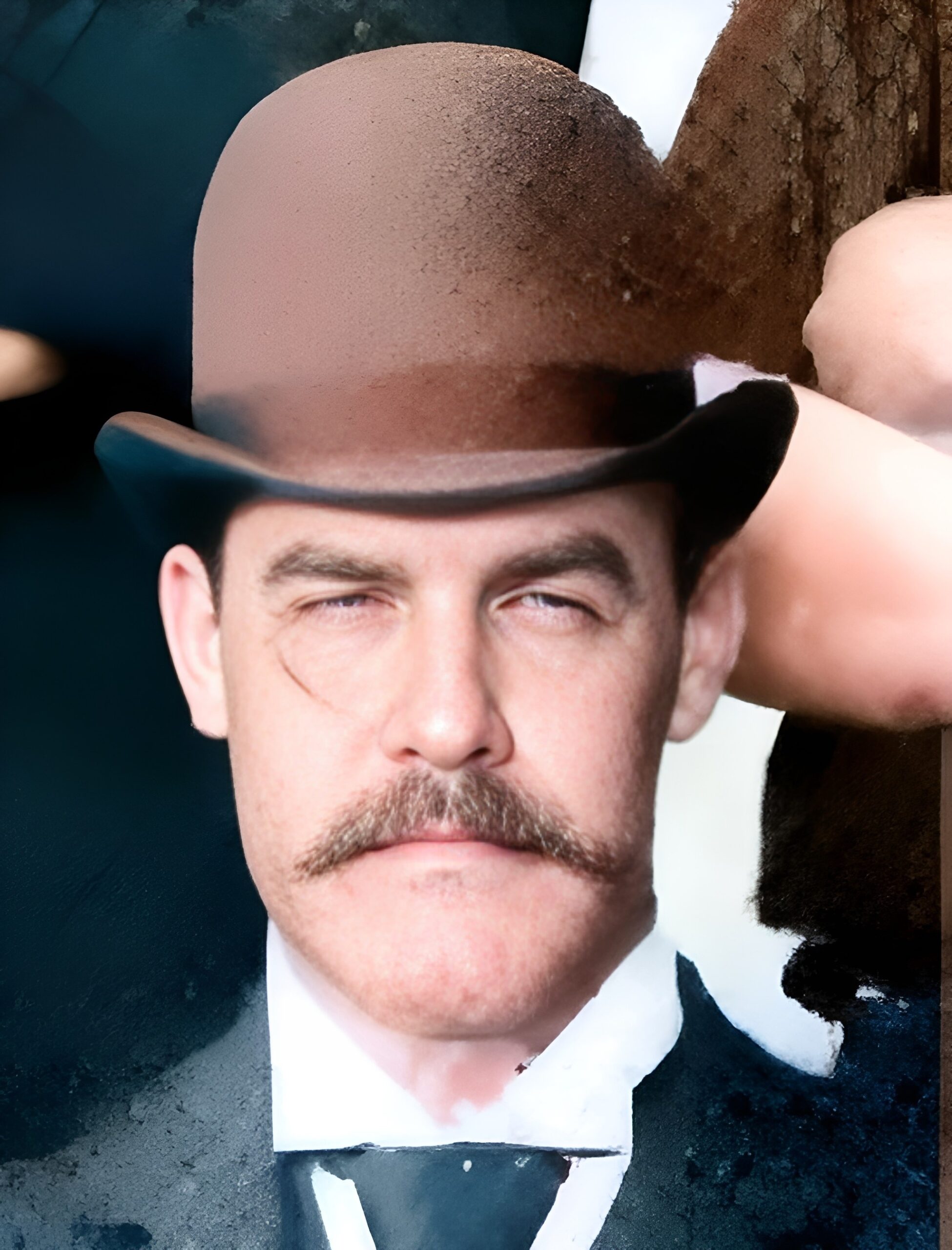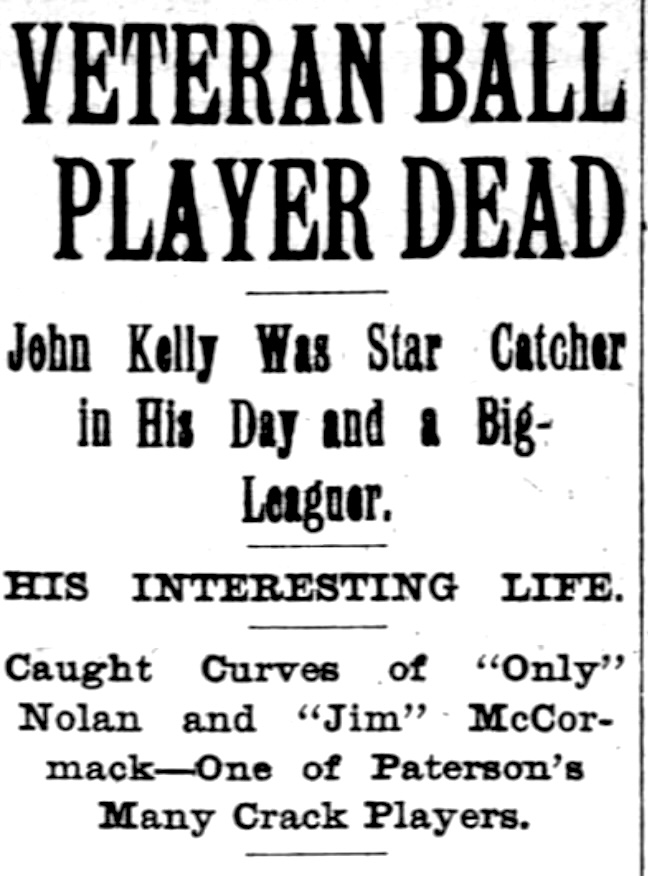
Sport: Baseball
Born: March 3, 1859
Died: April 13, 1908
Town: Paterson, New Jersey
John Francis Kelly was born March 3, 1859 in Paterson, NJ. His father, Peter, was an city alderman. During the 1870s, Paterson became an industrial power that attracted thousands of skilled and unskilled factory workers. Baseball became something of an obsession in town and a generation of skilled young players emerged in the middle of the decade.
Among the early standouts were Eddie Nolan, a pitcher who would gain fame as “The Only” Nolan, Jim McCormick, another accomplished hurler in the days of underhand deliveries, and Mike Kelly, who became the game’s first most popular player as “King” Kelly in the 1880s. John was a few years younger than this group, but soon earned a spot on their teams, primarily as a catcher. Kelly, McCormick and Blondie Purcell (like the others a future big-leaguer) played together on the Keystones, who called Olympic Field, an enclosed diamond near the Susquehanna rail yards, home.
As these stars filtered into the professional ranks, John, still a teenager, carved out a reputation playing amateur ball in Paterson as a sure-handed and durable receiver. During this era, catcher was a critical position. It often went to the best athlete on a club.
In 1879, McCormick was pitching for the Cleveland Blues of the National League. During an eastern road trip in June, the team found itself in need of a sub for catcher Doc Kennedy and McCormick arranged for John to play. He went 1-for-4 in his first and only big-league appearance that summer and also manned first base during the contest.
Also in 1879, Nolan was playing ball on the West Coast. He recruited John and some other Paterson amateurs and brought them out to San Francisco in the spring of 1880. John cemented his reputation as a standout receiver and reliable hitter for the Frisco Knickerbockers (Nolan had jumped to another California club). However, late in the season, he received news that his father had passed away. He quit the Knickerbockers and returned to New Jersey. He returned to amateur ball in 1881.
In 1882, McCormick reached out to John once again and talked him into joining his team in Cleveland, where he split catching duties with Charlie “Fatty” Briody. Briody was the superior hitter, but John still saw action in 30 games. The Blues had some good talent on the roster—including infielders Fred Dunlap, Bill Phillips and Jack Glasscock—but finished just a tick over .500, at 42–40.
In 1883, John decided to stay closer to home, playing for Baltimore of the American Association. He was the regular catcher on a club that finished last at 28–68. In 1884, John finished his pro career in Cincinnati with the “Outlaw Reds” of the Union Association and was among the team leaders with a .282 average. Glasscock and McCormick were also on the Cincinnati roster. Near the end of the season, John volunteered to umpire a handful of games.

The 1884 campaign was John’s last as a big-leaguer, although he continued to play ball around Paterson. He was never regarded as a star of the first order during his playing days, despite possessing all of the qualities demanded of a 19th century backstop. John worked for Passaic County business leader Alex Hughes in the 1880s and 1890s, and later opened a café in Paterson with his brother, Joseph. It was still in operation when John passed away in 1908 at the age of 49.
As John Kelly was one of the more common names in America, it was perhaps inevitable that Paterson’s John Kelly would be confused with other old-time baseball players. Chief among his doppelgängers was John “Kick” Kelly, a famous umpire, boxing referee and promoter—and professional gambler—who also appeared briefly in the majors in 1879. Kick Kelly was a New Yorker and far more famous than John. However, John is often given credit for having managed the Louisville Colonels in 1887 and 1888 (that was Kick Kelly) and Kick was named as a Paterson baseball pal of McCormick, Nolan, Kelly and Purcell(that was actually John) in the otherwise excellent 1996 McFarland & Co. book Slide, Kelly, Slide (a biography of Mike Kelly). To further confuse things, John was sometimes called “Honest John” after a popular New York politician who controlled Tammany Hall when John was a young man in Paterson.